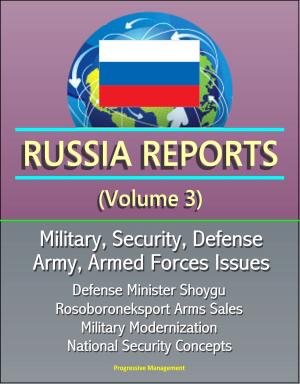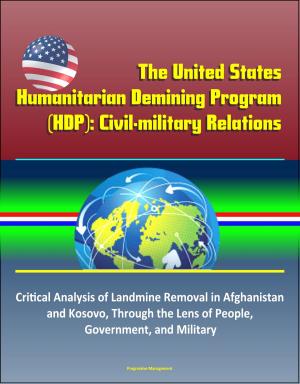A Game of Simon Says: Latin America's Left Turn and Its Effects on U.S. Security - Trend Toward Communism, Venezuela's Chavez and Bolivia's Morales, LAC, Mexico, Need for Fairer Trade Agreements, Aid
Nonfiction, History, Americas, Latin America, Military, United States| Author: | Progressive Management | ISBN: | 9781370191246 |
| Publisher: | Progressive Management | Publication: | September 28, 2016 |
| Imprint: | Smashwords Edition | Language: | English |
| Author: | Progressive Management |
| ISBN: | 9781370191246 |
| Publisher: | Progressive Management |
| Publication: | September 28, 2016 |
| Imprint: | Smashwords Edition |
| Language: | English |
This important report has been professionally converted for accurate flowing-text e-book format reproduction. A little over 200,000 votes in Mexico's 2006 presidential election determined whether or not the United States might soon share a border with a potentially communist country. A closer look reveals Mexico was nearly another domino in a rash of leftism that is sweeping through Latin America and the Caribbean (LAC). In fact, there are as many leftist countries in the LAC region today as there were in Eastern Europe at the height of the Cold War. This research will determine why leftism is on the rise and whether U.S. national security is being threatened.
The causes are a combination of extreme inequality with regards to income per capita, an increased awareness among the populace as to its unequal situation, a poor display of U.S. foreign policy, and an increase in education levels throughout the region. In short, Latin Americans are smarter, poorer, and angrier with the United States for its inattentiveness since the end of the Cold War.
The Bush administration's association of democracies with U.S. national security is shown to be questionable. Hugo Chavez and Evo Morales were both democratically elected, and their associations with known terror organizations and rogue states decrease U.S. security. In any case, most new leftist governments in Latin America are not true leftists. They are called leftist, but their external economic policies clearly resemble capitalism. Ironically, the effect on U.S. national security depends upon its own future actions.
Based on these findings, three policy proposals are recommended. First, the United States needs to pioneer fairer trade agreements. Second, the United States needs to increase its foreign aid, with earmarks for economic investments. Third, the United States needs to work harder at being a good neighbor. These three steps should pull the region together and thereby increase the entire hemisphere's security.
This important report has been professionally converted for accurate flowing-text e-book format reproduction. A little over 200,000 votes in Mexico's 2006 presidential election determined whether or not the United States might soon share a border with a potentially communist country. A closer look reveals Mexico was nearly another domino in a rash of leftism that is sweeping through Latin America and the Caribbean (LAC). In fact, there are as many leftist countries in the LAC region today as there were in Eastern Europe at the height of the Cold War. This research will determine why leftism is on the rise and whether U.S. national security is being threatened.
The causes are a combination of extreme inequality with regards to income per capita, an increased awareness among the populace as to its unequal situation, a poor display of U.S. foreign policy, and an increase in education levels throughout the region. In short, Latin Americans are smarter, poorer, and angrier with the United States for its inattentiveness since the end of the Cold War.
The Bush administration's association of democracies with U.S. national security is shown to be questionable. Hugo Chavez and Evo Morales were both democratically elected, and their associations with known terror organizations and rogue states decrease U.S. security. In any case, most new leftist governments in Latin America are not true leftists. They are called leftist, but their external economic policies clearly resemble capitalism. Ironically, the effect on U.S. national security depends upon its own future actions.
Based on these findings, three policy proposals are recommended. First, the United States needs to pioneer fairer trade agreements. Second, the United States needs to increase its foreign aid, with earmarks for economic investments. Third, the United States needs to work harder at being a good neighbor. These three steps should pull the region together and thereby increase the entire hemisphere's security.















